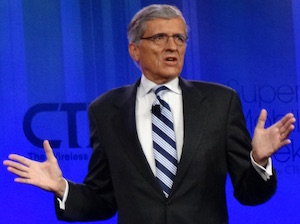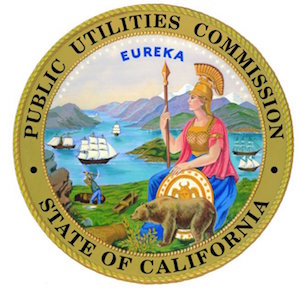FCC's argument against voter discretion is out of bounds
![By Museum claims ownership - Exhibit: 64-861 [Public domain], via Wikimedia Commons](https://www.tellusventure.com/images/2015/11/dewey_defeats_truman.jpg)
Voters don’t have to stick to the story you give them.
Local governments are not private businesses and are not managed as if they were. That simple fact of life seems to be bothering the Federal Communications Commission. In its defence of its preemption of state restrictions on municipal broadband systems, filed with a federal appeals court, the FCC points to commonplace public disclosure, debate and voting requirements imposed by North Carolina as attempts to regulate interstate commerce rather than govern municipalities…
… MoreThese include a requirement that the city hold public hearings and a special election.


![By [https://www.flickr.com/photos/7289631@N02/ japedi's buddy icon japedi] (Flickr.com - image description page) [CC BY 2.0 (https://creativecommons.org/licenses/by/2.0)], via Wikimedia Commons](https://www.tellusventure.com/images/2015/11/baltimore_convention_center.jpg)

![By Heurtelions (Own work) [GFDL (https://www.gnu.org/copyleft/fdl.html) or CC BY-SA 3.0 (https://creativecommons.org/licenses/by-sa/3.0)], via Wikimedia Commons](https://www.tellusventure.com/images/2015/10/dscount_bingo.jpg)


![By istolethetv from Hong Kong, China (team-up Uploaded by Princess Mérida) [CC BY 2.0 (https://creativecommons.org/licenses/by/2.0)], via Wikimedia Commons](https://www.tellusventure.com/images/2015/9/the_flash.jpg)
![By SBaker43 (Own work) [CC BY-SA 3.0 (https://creativecommons.org/licenses/by-sa/3.0)], via Wikimedia Commons](https://www.tellusventure.com/images/2015/9/center_of_tennessee.jpg)
![By James Petts from London, England (Monopoly) [CC BY-SA 2.0 (https://creativecommons.org/licenses/by-sa/2.0)], via Wikimedia Commons](https://www.tellusventure.com/images/2015/9/monopoly.jpg)